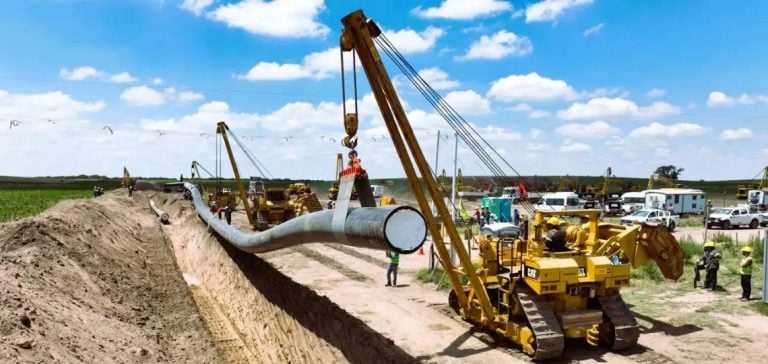YPF, the largest oil company in Argentina, announced on October 18 the completion of a pipeline project aimed at transporting 160,000 barrels of crude oil per day from the Vaca Muerta shale play to a local refinery and for export to Chile.
The final phase of the Vaca Muerta Norte project involved the commissioning of a pumping station equipped with two storage tanks, according to a statement from the state-run company. This pumping station is now the main transfer point for the light sweet crude Medanito, extracted from Vaca Muerta, a vast shale play located in northern Patagonia where production is surging.
Infrastructure and Production Capacity
Vaca Muerta Norte, with a storage capacity of 370,000 barrels, supplies part of the Medanito crude to YPF’s Luján de Cuyo refinery in Mendoza, with a capacity of 105,500 barrels/day. The rest is channeled through a 110,000 barrels/day pipeline to Chile to supply the state-owned ENAP’s Bío Bío refinery, with a capacity of 116,000 barrels/day, before being shipped via the Pacific.
This $250 million project positions YPF as the largest crude exporter in Argentina. Chile will thus become the second-largest importer of Argentine crude, the company stated.
Production Growth and Export Prospects
Oil production in the Neuquén province, home to most of the production acreage in Vaca Muerta, surged by 31.4% year-over-year to a record 430,654 barrels/day in August from 327,831 barrels/day the previous year, according to the Neuquén Energy Ministry.
This rapid growth fuels expectations that production will reach 1.2 million barrels/day by 2030, which will boost exports as domestic consumption remains at 500,000 barrels/day.
Argentina’s crude oil shipments totaled 109,026 barrels/day in August, with 80,365 barrels/day coming from Vaca Muerta, according to data from the national Energy Secretariat.
Future Projects and Development of Export Capacities
YPF is also planning to build a pipeline and an export terminal on the Atlantic, allowing the export of 700,000 barrels/day of crude, starting at 180,000 barrels/day in mid-2026.
Gustavo Medele, the Energy Secretary of Neuquén, stated that building transport capacities and export facilities must be the focus for the future development of Vaca Muerta. “Our great challenge is how to bring this energy to the world,” he said in an October 18 statement. “The transportation of this energy is going to take on greater importance.”






















